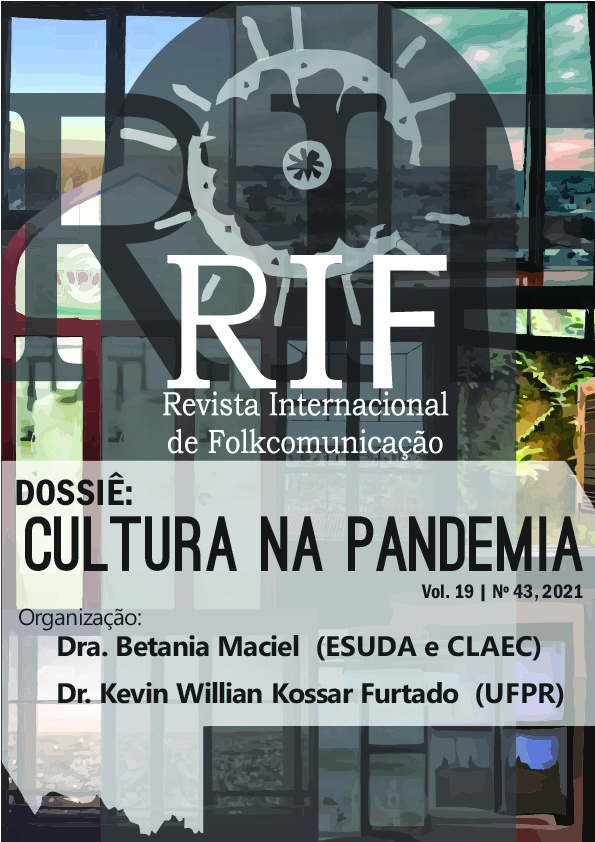Current events in Cordel
popular language and journalistic support
DOI:
https://doi.org/10.5212/RIF.v.19.i43.0004Abstract
It is observed that popular culture has long been the object of study by various researchers and social actors, especially at this time of pandemic, where popular culture is understood as creation and sociability, popular culture and life. For Beltrão (1980), culture is pre-existing, passes through our experience and criticism, and leads us to build a better world, according to the natural order that life requires. Therefore, our focus will be to present the importance of cordel literature, as an informative tool used for a long time by various social layers and which is still abundantly present today. Our study considers Cordel Literature to be a strong means of communication, especially in Northeast Brazil, the voice of a popular segment, which is configured as a process of folkcommunication and folkmedia. The literary, in its specificity, according to Marques de Melo (2008), is both entertainment and the means and support for the dissemination, conservation, transformation and updating of the people's culture. That is how Gilmar de Carvalho developed his work for over 40 years as a teacher, researcher and cultural producer, to whom we pay homage; bringing this secular expression and its creators that conserve strength and permanently feed informational flows as journalistic support.
Downloads
Published
How to Cite
Issue
Section
License

Este obra está licenciado com uma Licença Creative Commons Atribuição 4.0 Internacional.
Os autores são responsáveis, em qualquer que seja o formato do texto, pelas opiniões expressas ou indiretas presentes em seus respectivos trabalhos, não endossáveis pelo Conselho Editorial e pelos editores da Revista, bem como pela autenticidade do trabalho. Ao publicar trabalhos na Revista Internacional de Folkcomunicação, os autores cedem automaticamente os direitos autorais à publicação para veiculação das produções acadêmicas, sem ônus para a Revista. Os autores detêm os direitos autorais do texto para o caso de publicações posteriores e concedem à Revista Internacional de Folkcomunicação o direito de primeira publicação, com o trabalho simultaneamente licenciado sob a Creative Commons Attribution License, que permite o compartilhamento do trabalho com reconhecimento da autoria e publicação inicial nesta Revista. Por serem publicados em revista de acesso livre, os artigos são de uso gratuito, com atribuições próprias, em atividades educacionais e não-comerciais, sendo permitida a publicação simultânea em repositórios institucionais.































